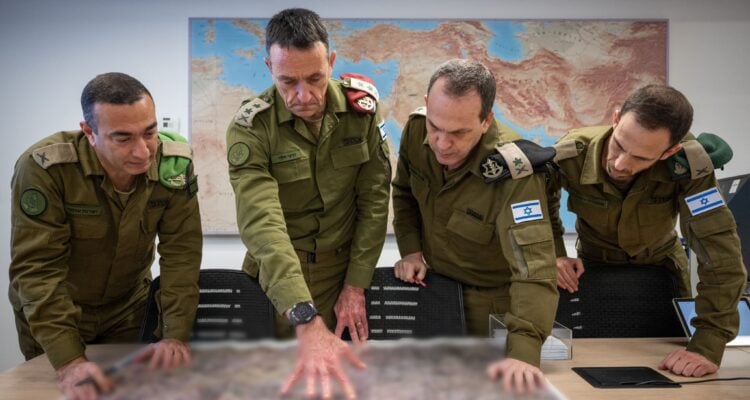The attack reportedly targeted Ali Karaki, Hezbollah’s No. 3 man.
By JNS
Israeli Air Force fighter jets conducted a targeted airstrike in Dahiyeh, the Hezbollah stronghold in southern Beirut, the military announced.
The attack reportedly targeted Ali Karaki, Hezbollah’s No. 3 man. Karaki is the terrorist organization’s highest-ranking remaining “military” commander following Friday’s assassination of Ibrahim Aqil.
Karaki had reportedly been chosen by Hezbollah to succeed Aqil. The terrorist heads Hezbollah’s southern front, which is responsible for the Iranian-backed terrorist army’s cross-border attacks on Israel.
Karaki is also a member of Hezbollah’s top “military” organization, the Jihad Council, which is subordinate to the Shura Council and under the direct control of Secretary-General Hassan Nasrallah.
According to Lebanon’s Al Mayadeen channel, which is affiliated with Hezbollah, at least three missiles were launched at Karaki’s location, and several people were wounded in the assassination attempt.
https://twitter.com/JewishWarrior13/status/1838248412799508902?ref_src=twsrc%5Etfw%7Ctwcamp%5Etweetembed%7Ctwterm%5E1838248412799508902%7Ctwgr%5E7b1cc773e9b23450de6dfa444d27efbd8369c0b3%7Ctwcon%5Es1_&ref_url=https%3A%2F%2Fpublish.twitter.com%2F%3Furl%3Dhttps%3A%2F%2Ftwitter.com%2FJewishWarrior13%2Fstatus%2F1838248412799508902
The IDF conducted a targeted strike in Beirut. Details to follow. pic.twitter.com/hot8x8stXp
— Israel Defense Forces (@IDF) September 23, 2024
Monday night’s aerial attack marked the fourth time that IAF jets struck the Lebanese capital since Hezbollah joined the war against the Jewish state in support of Palestinian Hamas in the wake of the Oct. 7 massacre.
On Friday, the IDF took credit for a targeted airstrike in Dahiyeh that killed more than a dozen Hezbollah officers including top terrorist commander Ibrahim Aqil, who was also wanted by the United States for involvement in the 1983 bombing of the U.S. embassy in Beirut.
On July 30, Israeli Air Force jets carried out a targeted assassination in southern Beirut of Hezbollah’s No. 2 “military” commander, Fuad Shukr.
Hezbollah has attacked Israel nearly daily since Oct. 8, 2023, firing thousands of rockets, missiles and drones. The attacks have killed more than 40 people and caused widespread damage. Tens of thousands of Israeli civilians remain internally displaced due to the violence.





